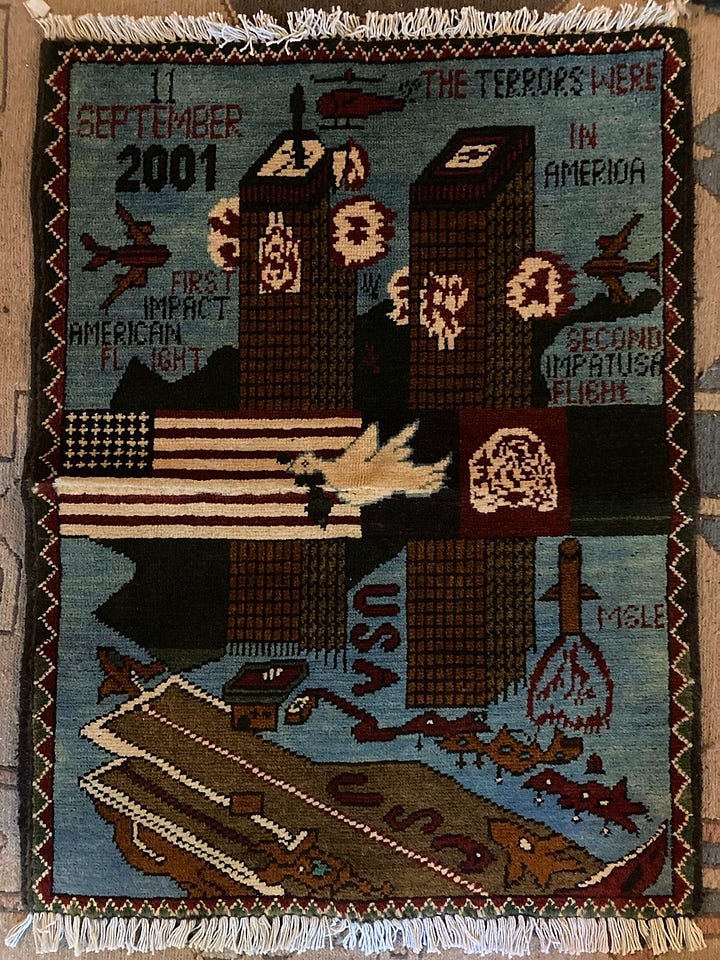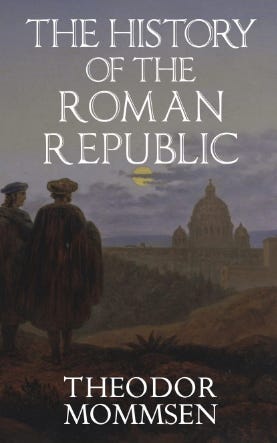On the Ground in Afghanistan, On the Level in Ancient Rome
Lord Miles Routledge returns to Kabul. Peter Nimitz examines the crumbling U.S. empire in light of the Roman Republic.
Dear reader,
We live in what Mark Greif, in an early issue of n+1, called the “total aesthetic environment.” Not only do the viral clips and images on our screens obsess us and shape our opinions, they actually drive the culture itself. Our media-based perceptions actually create our lived experience. It’s a weird positive feedback cycle in which distortions become truer than truth.
There’s no obvious way to counteract this phenomenon. In fact it will have to get worse before it gets better. But in the meantime, for those who retain the attention span to read, there’s at least a way around it. Essays can be circumspect and even self-contradictory in ways that tweets, clips, and images cannot. Take, for instance, MRB Issue 3’s “Afghanistan: A Land of Contradictions” by “Lord” Miles Routledge and “A Window into the Roman Empire” by Peter Nimitz, which are now out from behind the paywall.


Routledge is an ice-veined traveler who is not afraid to do what so many foreign correspondents refuse to do: see things with his own eyes and tell them plainly. Routledge happened to be present at the Fall of Kabul and witnessed firsthand the chaos of that moment. A year later he returned to Kabul and gave his impressions for the MRB. He writes:
A paradoxical element of Taliban rule was evident here. Despite the beating, the woman was immediately given food afterwards and was offered a ride by an official back to her place of residency. People whispered and gossiped about her in the line for her misdeeds, yet the Taliban warned everyone about gossiping about a hungry woman desperate to get food. Despite her look of embarrassment, the woman thanked the Taliban.
What I like most about Routledge’s writing is his willingness to observe without moralizing or prevaricating. It was Chekhov who said “when you want to touch the reader's heart, try to be colder.” I think we could all stand to be a little colder these days, if we would wish to touch hearts.
Peter Nimitz is an extraordinary writer who posts some of the most fascinating history threads on Twitter. Whereas Lord Miles flung himself across space in order to better know a much misunderstood country, Nimitz flung himself across time. His “A Window into the Roman Empire” takes as its subject German polymath Theodor Mommsen’s 19th century tome The History of the Roman Republic, recently republished in an abridged edition by Rogue Scholar Press.


Through his reading of Mommsen, Nimitz cuts through the fat of Roman history and finds an interesting parallel between Rome and the United States in its twilight years:
The most relevant lesson from Mommsen’s history is that it was the successes resulting from those capable institutions that laid the groundwork for the fall of the Republic. The middle class was eroded by the mass importation of slaves that were taken following foreign conquest. Financiers became mighty political actors from their large operations. The increasing concentration of power in Rome drove many to seek their own power within it, thus hollowing out the spirit of the city. Lack of existential foreign threats meant that domestic political squabbles predominated, causing a dysfunction that was only resolved with the victory of Caesar. Had Rome remained a middling power, the Republic could have lasted longer.
One wonders what might resolve similar dysfunction here in the U.S. Only time will tell. Until then, the least (and possibly the most) we can do is train ourselves to think clearly.
I hope you’ll find that both of these pieces contribute to such a project. I know that I at lest found myself enriched by them.
Best,
Noah Kumin
Editor in Chief
Mars Review of Books
